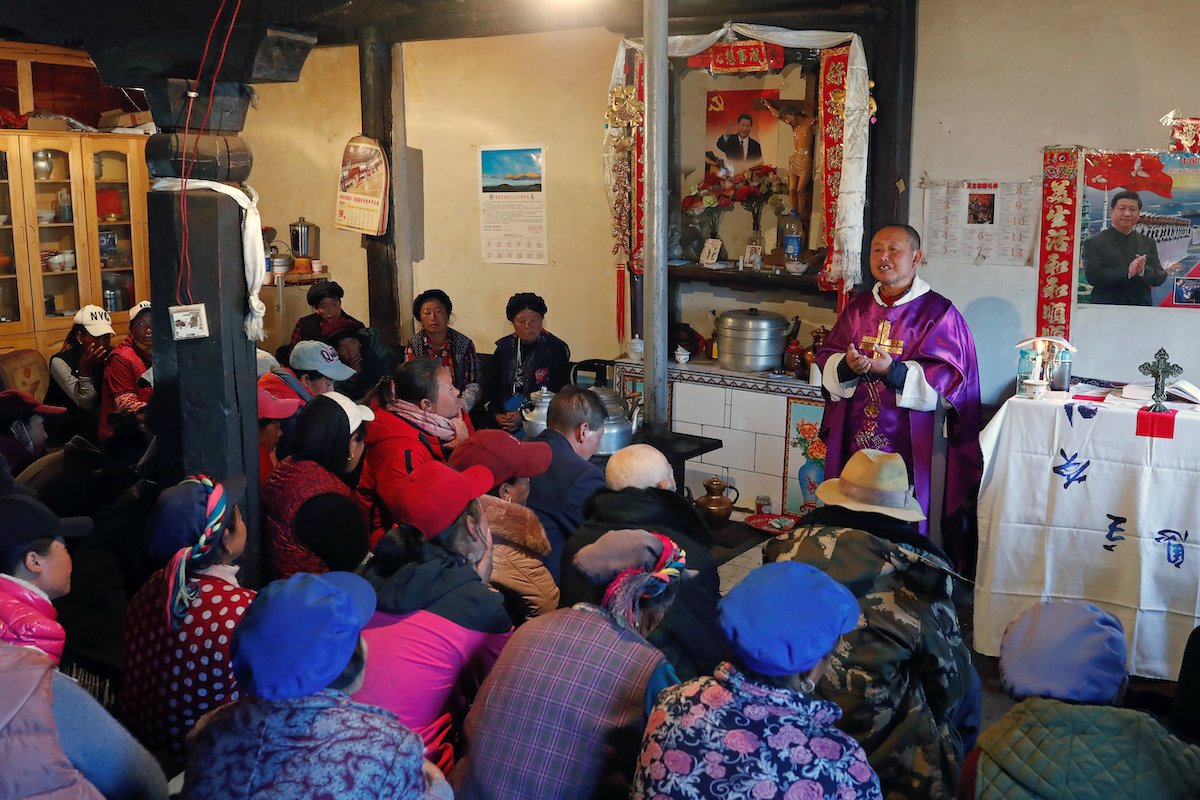By Cindy Wooden, Catholic News Service
VATICAN CITY (CNS) — Saying it is committed to “respectful dialogue” with China’s communist government and to “fostering the mission of the Catholic Church and the good of the Chinese people,” the Vatican announced it has renewed its agreement with China on the appointment of bishops.
The “provisional agreement,” forged in 2018 and renewed in 2020, has been extended for another two years, the Vatican announced Oct. 22.
The text of the agreement has never been made public, but Vatican officials said it outlines procedures for ensuring Catholic bishops are elected by the Catholic community in China and approved by the pope before their ordinations and installations.
In the past four years only six bishops have been named and installed under the terms of the agreement.
Cardinal Pietro Parolin, Vatican secretary of state, interviewed by Vatican News Oct. 22, noted that the achievements of the agreement also included the lifting of the excommunications or irregular status of seven bishops who had been ordained with government approval, but not the Vatican’s consent and, he said, “the first six ‘clandestine’ bishops have also succeeded in being registered and thus have had their position made official, being recognized as bishops by public institutions.”
Many dioceses are still without bishops or have very elderly bishops, he said, but the process is continuing.
However, Cardinal Parolin also acknowledged “there are dioceses in which, despite all efforts and good will, no fruitful dialogue exists with local authorities.”
The agreement is still “provisional” because “we are still in the experimentation phase,” the cardinal said. “As is always the case, such difficult and delicate situations require adequate time for implementation in order to then be able to verify the effectiveness of the result and identify possible improvements.”
“Pope Francis — with determination and patient foresight — has decided to continue along this path, not under the illusion of finding perfection in human rules, but in the concrete hope of being able to assure Chinese Catholic communities, even in such a complex context, of the guidance of pastors who are worthy and suitable for the task entrusted to them,” Cardinal Parolin said.
The cardinal reaffirmed what Pope Francis and Vatican officials have said all along: giving up full control over the choice of bishops is not what the Vatican would have hoped for, but it seemed to be a good first step toward ensuring greater freedom and security for the Catholic community in China.
The deal, however, has been criticized by several prominent figures, including by Cardinal Joseph Zen Ze-kiun, retired archbishop of Hong Kong, who said the agreement would “kill” the unofficial or underground church in China, whose leaders refuse to register with the state-run Chinese Catholic Patriotic Association.
Cardinal Parolin told Vatican News that the agreement is not primarily about diplomatic relations with China. Rather, he said, “it mainly concerns aspects that are essential to the daily life of the church in China. I am thinking, for example, of the validity of the sacraments celebrated and the certainty for millions of Chinese faithful that they will be able to live out their faith in full Catholic communion, without thereby being suspected of not being loyal citizens to their country.”
Cardinal Luis Antonio Tagle, whose maternal grandfather was Chinese, told Fides, the news agency of the Dicastery for Evangelization, that in China “historical events had led to painful wounds within the church, to the point of casting a shadow of suspicion on the sacramental life itself. So, there were things at stake that touch the intimate nature of the church and her mission of salvation.”
The agreement attempts “to safeguard the valid apostolic succession and the sacramental nature of the Catholic Church in China,” Cardinal Tagle said. “This can reassure, comfort and enliven baptized Catholics in China.”
As a byproduct of its dialogue with the Chinese government, he said, “one of the wishes of the Holy See has always been to foster reconciliation, and to see the lacerations and contrasts opened within the church by the tribulations it has gone through, healed. Certain wounds need time and God’s consolation in order to be healed.”
The Vatican is not naive, he said. “The Holy See has never spoken of the agreement as the solution of all problems. It has always been perceived and affirmed that the path is long, it can be tiring and that the agreement itself could cause misunderstandings and disorientation.”
In addition, the Vatican would not and does not ignore or minimize the suffering and the different reactions of Chinese Catholics to the agreement, he said. The joy of some and the perplexity of others “is part of the process. But one always has to dirty one’s hands with the reality of things as they are.”
“Many signs attest that many Chinese Catholics have grasped the inspiration followed by the Holy See in the ongoing process,” he said. “They are grateful and comforted for a process that confirms before all their full communion with the pope and the universal church.”






